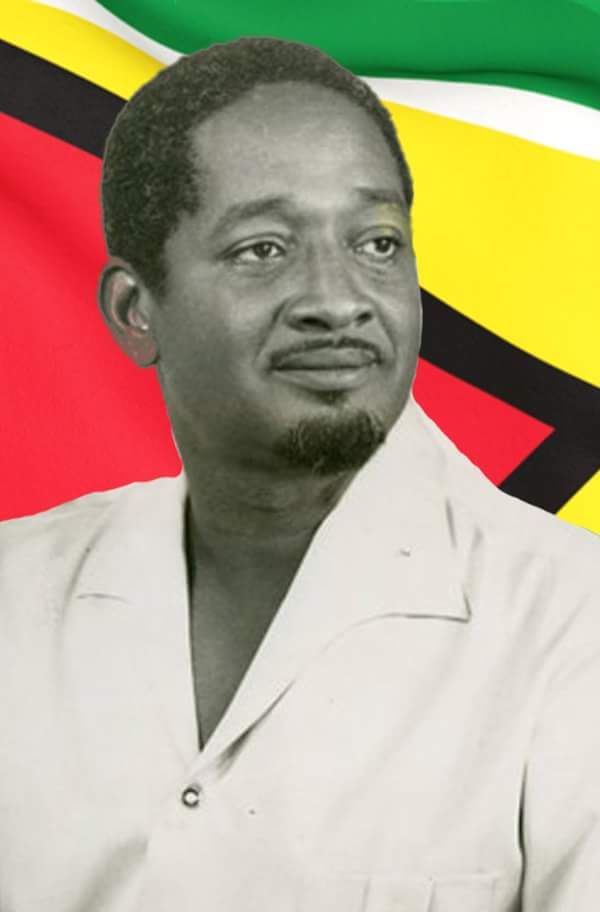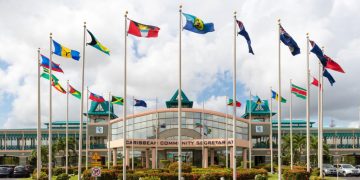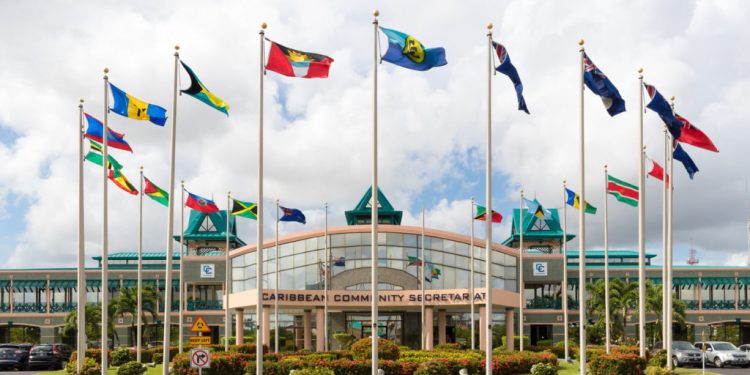The Caribbean Community and Common Market (CARICOM) observes this week the 50th anniversary since its founding. US Secretary of State Anthony Blinken will be the special guest at the historic anniversary commemoration in Port of Spain, Trinidad. Guests from the Commonwealth and other inter-governmental organizations have also been invited.
Caricom is a successor to the regional integration of British colonial territories called the British West Indies Federation. The federation was formed in 1958 and collapsed in 1962 when the leaders of each territory could not come to an agreement on the way forward. Independence was granted to Jamaica and Trinidad and Tobago in 1962 followed by Guyana and Barbados in 1966. Although independent nations, the leaders of each spoke of the need for close political cooperation. First CARIFTA or Caribbean Freed Trade Area was formed in 1966 and launched in 1968. It would take some eleven years after the collapse of the federation and five years after Carifta that an agreement was reached for the formation of Caricom, an inter-governmental regional organization. All Anglophone territories with a self-government became members by 1971.
 At the Seventh Heads of Government Conference in October 1972, Caribbean Leaders agreed to transform CARIFTA into a Common Market and establish the Caribbean Community of which the Common Market would be an integral part The Treaty of Chaguaramas establishing CARICOM was signed in Trinidad. Initially, the PM of Barbados Errol Barrow, Guyana Forbes Burnham, Trinidad and Tobago Eric Williams, and Jamaica Michael Manley signed the treaty. The leader of other independent countries would join later. The leaders engaged Forbes Burnham even though they knew that he rigged elections in 1968 to remain in office and that he had established a dictatorship.
At the Seventh Heads of Government Conference in October 1972, Caribbean Leaders agreed to transform CARIFTA into a Common Market and establish the Caribbean Community of which the Common Market would be an integral part The Treaty of Chaguaramas establishing CARICOM was signed in Trinidad. Initially, the PM of Barbados Errol Barrow, Guyana Forbes Burnham, Trinidad and Tobago Eric Williams, and Jamaica Michael Manley signed the treaty. The leader of other independent countries would join later. The leaders engaged Forbes Burnham even though they knew that he rigged elections in 1968 to remain in office and that he had established a dictatorship.
At the Eighth Heads of Government Conference of CARIFTA held in April 1973 in Georgetown, Guyana the decision to establish the Caribbean Community was brought into fruition with the consideration of Heads of Government of the draft legal instruments and with the signing by 11 members of CARIFTA (the exception being Antigua and Montserrat).
The Accord provided for the signature of the Caribbean Community Treaty on July 4 and its coming into effect in August 1973, among the then four independent countries: Barbados, Guyana, Jamaica and Trinidad & Tobago.
The Georgetown Accord also provided that the other eight territories – Antigua, British Honduras, Dominica, Grenada, Saint Lucia, Montserrat, St. Kitts/Nevis/Anguilla and St. Vincent which signed the Accord would become full members of the Community by May 1, 1974.
Caricom came into effect on August 1, 1973. Guyana agreed to be the headquarters or the Secretariat. The nations or territories have collectively come together to expand their trade and economic relations. Subsequently the other eight Caribbean territories joined CARICOM. The Bahamas became the 13th Member State of the Community on July 4, 1983, but not a member of the Common Market. In July 1991, the colonies of British Virgin Islands and the Turks and Caicos became Associated Members of CARICOM, followed by Anguilla in July 1999. The Cayman Islands became the fourth Associate Member of the regional grouping on 16 May 2002, and Bermuda the fifth Associate Member on 2 July 2003. Suriname became the 14th Member State of the Caribbean Community on July 4, 1995. Haiti secured provisional membership on 4 July 1998 and on 03 July 2002 was the first French-speaking Caribbean State to become a full Member of CARICOM.
 Just prior to the entry of Haiti, a revised Treaty of Chaguaramas established the CARICOM Single Market and Economy (CSME) and was signed by the CARICOM Heads of Government of the Caribbean Community on 5 July 2001 at their Twenty-Second Meeting of the Conference in Nassau, The Bahamas.
Just prior to the entry of Haiti, a revised Treaty of Chaguaramas established the CARICOM Single Market and Economy (CSME) and was signed by the CARICOM Heads of Government of the Caribbean Community on 5 July 2001 at their Twenty-Second Meeting of the Conference in Nassau, The Bahamas.
Since 2013 the CARICOM-bloc and with the Dominican Republic have been tied to the European Union via an Economic Partnership Agreements known as CARIFORUM. The treaty grants all members of the European Union and CARIFORUM equal rights in terms of trade and investment.
The USA has also been working closely with Caricom member states granting certain privileges in trade and doling out developmental assistance. It would be interesting to learn what Blinken brings to the table on Wednesday July 5 when he addressed the heads of governments.


































































